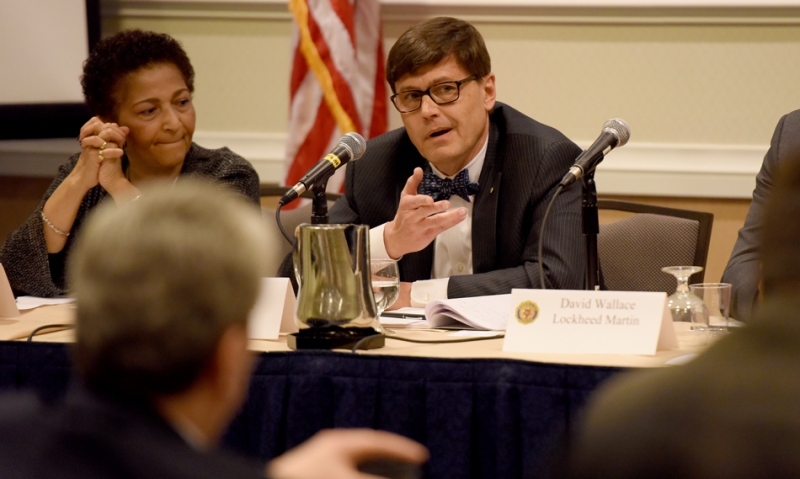
Panelists from several major corporations shared their insights on veterans and the job market during the Legion's Employment & Empowerment Summit.
The American Legion’s Employment & Empowerment Summit featured a corporate panel that answered questions about the hiring of veterans in the private sector. Panelists included representatives from IBM, Humana, Lockheed Martin, Boeing, Time Warner Cable and CitiGroup.
When asked how successful their companies were in hiring veterans and recruiting transitioning servicemembers, David Wallace of Lockheed Martin replied that 27 percent of the company’s employees are veterans. David Olsen of Boeing added that his company is very attracted to “a lot of skill sets that come out of the military.”
While his company's overall hiring of veterans are not high, Citi's KC Choi said the Citi Salutes program is helping to increase those numbers. The program offers mentoring services to help veterans learn about opportunities in consumer and corporate banking.
James Tongate of Humana said about 25,000 veterans worked for the company in 2011. Since then, after his leadership met with President Obama, that number has increased to 56,000. Humana has set up a hiring portal for transitioning servicemembers and their spouses. It has also developed internal tools for its hiring managers to better understand military terminology.
IBM has been fairly consistent with the number of veterans it employs, said Tonieh Moshier. “We have some unique hiring needs, too” and IBM hires many veterans through its employee referral program. The company also invites promising job candidates to take its online resume workshop.
Time Warner Cable’s slogan, “Think globally, act locally,” also applies to its veteran-hiring policy, said Paul Turevon. The company works with The American Legion and other organizations on the local level to “help identify people who are good matches for employment. If we can’t hire (veterans), we refer them to others," Turevon said.
Turevon said that 8.2 percent of Time Warner Cable’s 52,000 employees are veterans; many of them work in sales, customer care and technical operations.
When a veteran seeks employment in the private sector, Wallace said “the key thing is making sure you tailor your resume to match 100 percent of those qualifications” for a particular job. “If you don’t have that, you’re not moving forward.” Veterans need to know how to translate their military skills into civilian job qualifications.
Because most veterans are purpose-driven, Tongate said they need to make sure they go after jobs that will satisfy them. “If it’s not a good match, they will get bored,” Tongate said. Olsen added that veterans need to get their resumes “past the computer” by understanding the details of a position and using key words that relate to it.
“Keep your resume to two pages,” Moshier said. Veterans need to make sure they meet the basic qualifications of a job – the “core competencies. If not, you will disqualify yourself.”
Wallace said that Lockheed Martin wants resumes “that are justifiable, accountable and results-oriented.” Personal branding messages are important: “sell yourself.” Veterans need to explain their skill sets to potential employers, then ask what job openings would best fit those skills.
“Take the time to read your own resume,” Wallace said. “Catch your mistakes before potential employers see them and get someone else to read your resume.”
One question that almost always comes up when interviewing a veteran, Turevon said, is “Why did you leave the military?” The answer should not be, for example, “Because I didn’t like it.” A more positive response will help, Turevon said, such as “I served my country and now it’s time to move on.”
- Washington Conference

